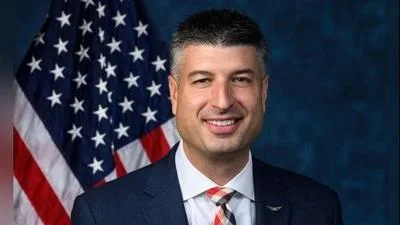Kevin M. Guskiewicz President at Michigan State University | Official website
Kevin M. Guskiewicz President at Michigan State University | Official website
Michigan State University (MSU) has a long-standing partnership with Flint, Michigan, which spans over a century. The university's Extension has been active in Genesee County for more than 100 years, while MSU Medical students have been engaged in the community since 1971. Currently, over 300 students from various colleges are involved in Flint alongside faculty and researchers.
MSU played a significant role during the Flint water crisis by helping to identify recovery efforts through initiatives like the Flint Registry. The university continues to launch public health programs such as Rx Kids and the Flint Spartan Master of Public Health Scholarship to provide opportunities for youth.
Reflecting on the decade since the crisis, MSU is committed to developing programs addressing mental health solutions and health disparities through initiatives like the Flint Public Health Youth Academy.
Several MSU experts are available to discuss recovery efforts and future initiatives:
Mona Hanna-Attisha is an associate dean at MSU's College of Human Medicine. She led efforts in uncovering the water crisis and advocates for eliminating infant poverty through innovative programs like Rx Kids. She said, “Flint has a history of paving the way forward...Flint is innovatively leading the way for health, hope and opportunity.”
Kenyetta Dotson, director at MSU’s Charles Stewart Mott Department of Public Health, highlighted that residents are ready to embrace a "new normal" after living through the crisis for ten years. She stated that having positive programs and support teams is essential for moving forward.
Nicole Jones, an epidemiologist at MSU's College of Human Medicine, co-leads the Flint Registry. She emphasized its role in promoting wellness and influencing policy changes. “The community voices expressed through the Flint Registry have led to policy and regulatory changes across Michigan and the United States,” she noted.
Maria Lapinski from MSU’s College of Communication Arts studies communication related to health risks. She emphasized risk communication's importance during crises like those faced by Flint: “At the center of risk communication are...the people most impacted by the risk.”
Geri Alumit Zeldes from MSU School of Journalism documents narratives about crises in her hometown of Flint. Highlighting resilience among residents despite challenges posed by socioeconomic issues, she said they will continue fighting for resources post-crisis.
The Flint Registry remains central in connecting residents with services aimed at improving their wellbeing while gathering data on how they were affected by past events.





 Alerts Sign-up
Alerts Sign-up